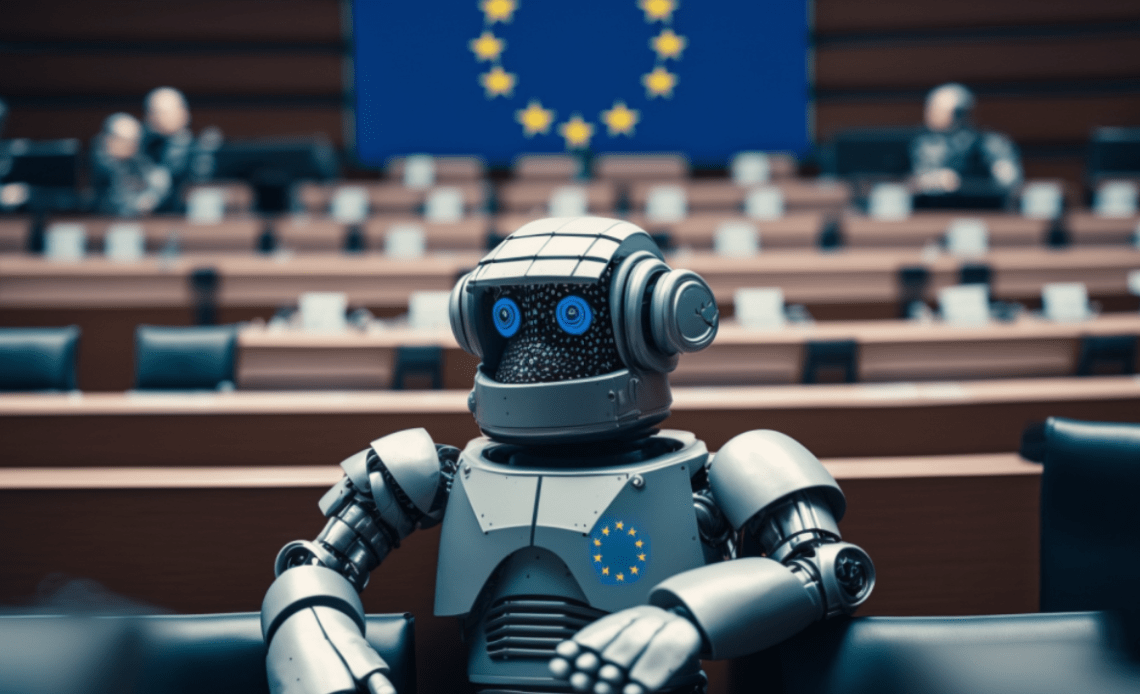Photo was created by Webthat using MidJourney
EU Takes Action to Regulate AI
Generative AI refers to machines’ ability to create new and unique content or ideas by learning from existing data. This technology has become increasingly popular in recent years, with OpenAI’s ChatGPT being a prime example of its effectiveness.
However, despite the benefits of AI, lawmakers have expressed concerns about the technology’s potential misuse. Therefore, it comes as no surprise that EU lawmakers have now taken action to regulate the use of generative AI.
The Emergence of ChatGPT and Increased Interest in Generative AI
OpenAI’s ChatGPT was a significant milestone in the development of AI technology. Its ability to produce human-like responses made it an overnight sensation, attracting considerable attention from tech enthusiasts around the world.
Following this, there was an explosion of interest in AI, with several startups and tech giants investing significantly in the technology’s development.
MEPs Update Regulations to Include Generative AI
Earlier this year, European Union (EU) lawmakers raced to create landmark regulations that would govern the use of artificial intelligence, including AI.
The MEPs drafted new proposals over eleven days that identified copyright protection as a core element of the regulation, requiring companies with AI systems to disclose copyrighted material used to train their models.
As a result, the use of AI technology will be limited to certain areas, such as scientific research, journalism, and education.
Data Security Concerns and Warnings of Human-Like Intelligence
One of the main concerns driving MEPs to update their regulations is the potential misuse of AI. Data security concerns are the primary focus of these new regulations, as the technology has the potential to violate personal data privacy, creating new content from sensitive data, or generating deepfake information to mislead individuals.
Additionally, AI has the possibility of creating human-like intelligence, which may lead to unethical uses of the technology.
Implications of the Draft Proposals
The new draft proposals have far-reaching implications for the development and use of AI technology in the EU. For example, the regulations are expected to have a significant impact on businesses that rely heavily on AI, such as advertising agencies and content creation studios.
Additionally, the regulations would create a framework for the transparent use of generative AI to prevent its abusive use.
Balancing Innovation and Responsibility
The EU’s new draft proposals for regulating generative AI are a step in the right direction. They address concerns about the misuse of the technology and establish a framework for its transparent use in certain areas.
However, as with any new regulation, there are benefits and drawbacks to consider. The impact on businesses and individuals who rely on generative AI technology remains to be seen.
Overall, the EU’s actions serve as a warning to other countries making strides in the developing field of generative AI, and further regulation is likely to follow to prevent misuse and promote fair and transparent AI implementation.
CLICK HERE TO READ MORE ON WEBTHAT NEWS


